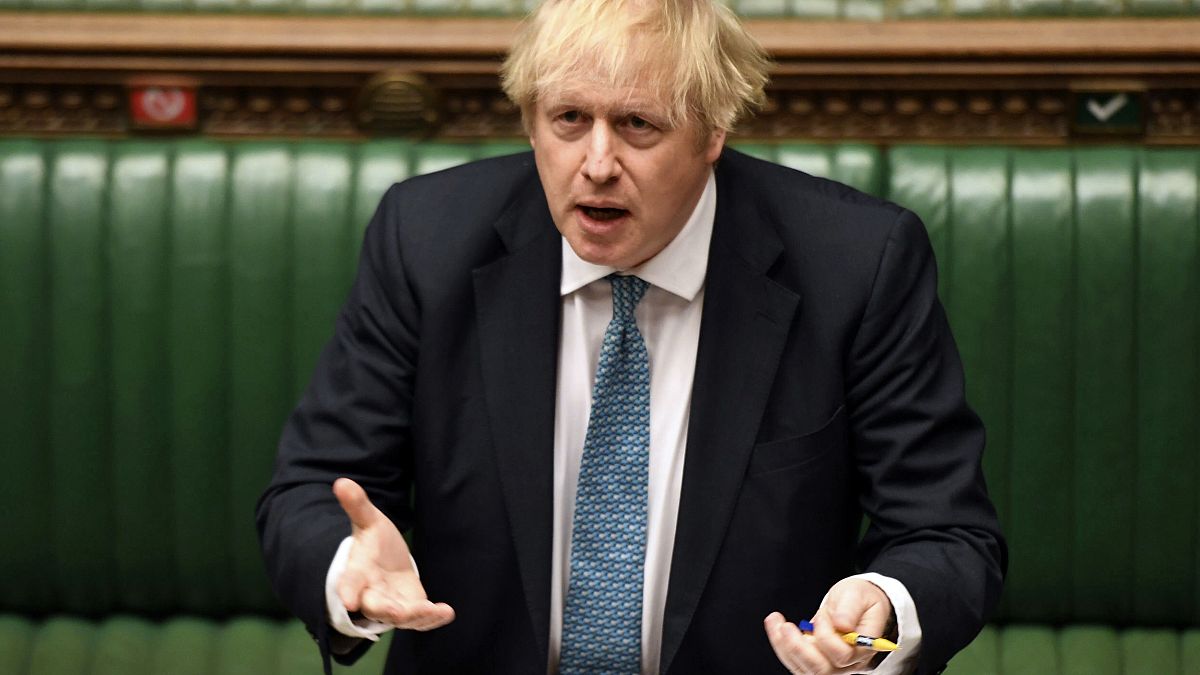The British prime minister was challenged by the opposition leader in parliament amid anti-racism protests and the COVID-19 pandemic.
British Prime Minister Boris Johnson has faced questions in parliament amid anti-racism protests and the COVID-19 pandemic.
Johnson spoke as thousands have demonstrated in solidarity with US Black Lives Matter protesters over the death of George Floyd.
Floyd died following a police arrest in Minnesota during which an officer knelt on his neck for nearly nine minutes despite his cries of distress.
Public outrage has led to global protests demanding action to tackle racial injustice. Demonstrators in the UK recently demanded that statues of slave traders be removed amid the protests.
Opposition Labour leader Sir Keir Starmer pressed the prime minister on numerous reports that have been carried out into racial inequality, accusing the government of having taken "precious little action". He specifically mentioned the Lammy report into the criminal justice system, and another report into the Windrush generation -- immigrants who came to the UK over several decades after World War II but who were faced with deportation because of a lack of official paperwork.
Starmer asked Johnson to "turbocharge" its responses to the reports, and demanded to know when recommendations would be implemented in full.
Boris Johnson said he understood the "strong and legitimate" feelings in the UK at the death of George Floyd and agreed that "Black lives matter". The government was "getting on with the implementation" of the reports, he added. The number of BAME (Black, Asian and minority ethnic) people in the prison service was being increased, as was the use of body-worn cameras, and efforts were being made to ensure that young BAME people were not immediately prosecuted if they found themselves in trouble.
However, the prime minister stressed that it was "absolutely vital" to keep the streets safe and support the police.
He refused to be drawn into commenting on Donald Trump or the US President's response to George Floyd's death, described by one MP as "horrendous".
"He is President of the United States which is our most important ally in the world today, and whatever people may say about it, whatever those on the left may say about it, the United States is a bastion of peace and freedom and has been for most of my lifetime," Boris Johnson replied.
The prime minister was also challenged about the government's phasing out of lockdown measures to stop the spread of coronavirus and general handling of the crisis.
Asked by the Labour leader about a report which found that BAME communities were more exposed to coronavirus, the prime minister said the government was acting and was expanding and targeting testing for high-contact professions.
Starmer also cited figures for UK coronavirus deaths, saying they were among the highest anywhere in the world and "haunt us". The official government tally is more than 40,000 deaths, the Office for National Statistics (ONS) puts it at over 50,000, and the number of "excess deaths" compared to the average for the same time of year is 63,000.
Johnson said every loss of life was mourned, but the "best scientific advice" was to wait for the epidemic to complete its whole cycle before making international comparisons.
Watch the Prime Minister's Questions session as it happened in the video player above.
